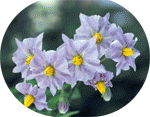| Abstract Detail
Plant Protection Poveda, Katja [1], Tscharntke, Teja [1]. Diversification of Andean crop systems at local and landscape scales: enhancing biological control of potato pests. CURRENT agricultural practices have caused serious ecological problems that affect agricultural sustainability by reducing ecological functions and biodiversity. There is evidence that the density of natural enemies of crop pests is related to high biodiversity. This has been shown for landscape-scale management practices (augmenting landscape complexity) and for intercropping systems (augmenting biodiversity at a local scale). However, the relative importance of local and landscape management and the mechanisms through which biodiversity may enhance biological control are still unknown. In this project we will investigate how increased plant diversity at different spatial scales affects biological control of herbivores in potato fields in the Colombian Andes. By (1) increasing plant diversity at the field scale and (2) choosing fields along a gradient in landscape complexity, the single and combined effects of these variables on biological control will be analyzed. Furthermore, we will examine whether an increase in plant functional group diversity (trap plants, repellent plants and flowering plants) enhances biological control. The introduction of trap, repellent and flowering plant species to potato fields is expected to reduce the density of the potato moth (Phthorimaea operculella, Lepidoptera: Gelechiidae), a pest able to destroy 100% of the potato crop. The role of constitutively emitted volatile organic compounds (VOCs), from selected weed species and potato, as signals for herbivores and their natural enemies in these interactions will be shown. The results of the project are expected to contribute to the development of sustainable and ecologically sound management methods for potato cultivation in the Andes. Therefore, the requirements and restrictions of management scales, local cropping practices and landscape management are considered.
Log in to add this item to your schedule
1 - Georg-August-University Göttingen, Agroecology, Waldweg 26, 37073 Göttingen, , Germany
Keywords:
repellent plant
plant-insect interaction
trap plant.
Session: Poster-1
Location: Ballroom CD/Monona Terrace
Date: Tuesday, July 25th, 2006
Time: 8:00 AM
Abstract ID:398 |
